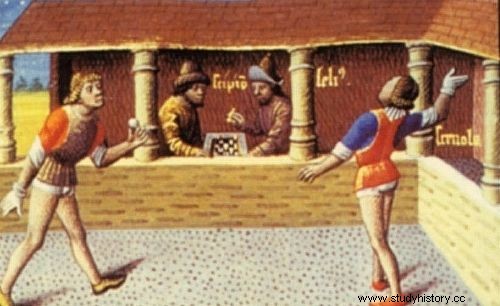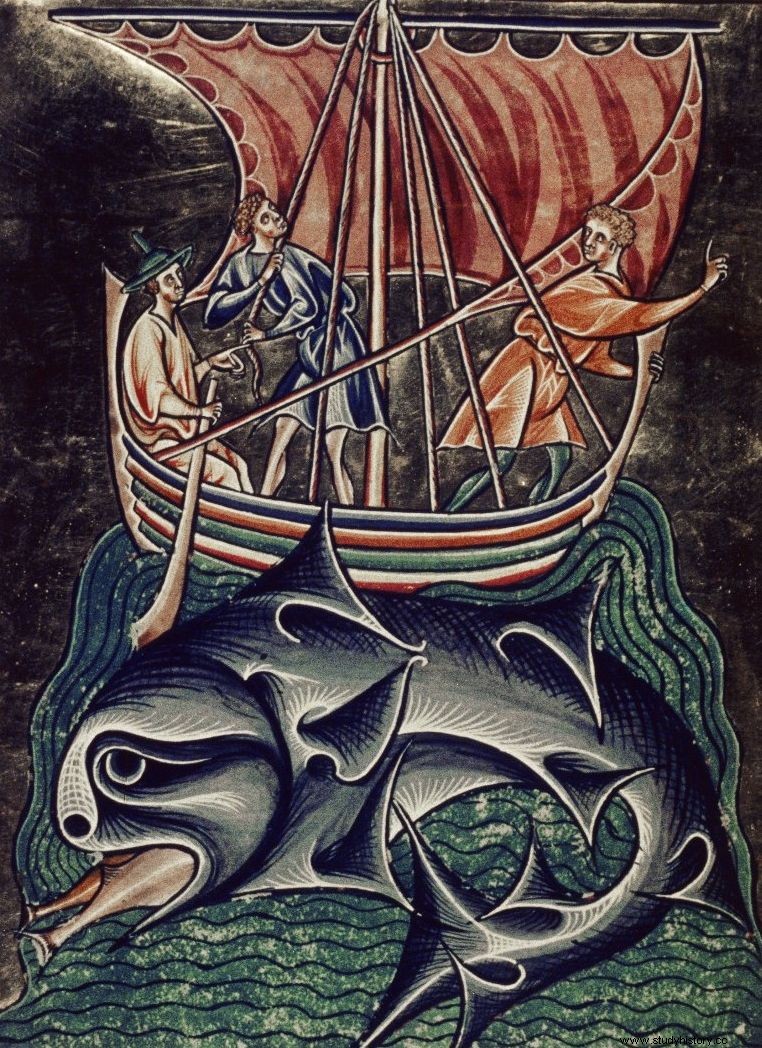Legal tips for all occasions? Absurd regulations and penalties? Bans that cannot fit in your head? The people of medieval England knew it all. And more.
The supposedly dark ages were not so dark when it comes to legal scrupulousness. In Western Europe, codes regulating even the smallest aspects of life were created. Individual cities, counties or counties had their own regulations, often radically different. However, they were united by a common tendency to introduce an outright obsessive order in the chaos typical of this epoch. There is hardly a better example than the Worcester Circuit Statutes quoted extensively in the pages of Ian Mortimer's new book. In the city, outside, in the monastery. How to survive in medieval England?
According to this set of laws, grain was allowed to buy in summer only "before 11 o'clock bell", and in winter - before 12 o'clock. Parking was prohibited in the main square. Or rather the prohibition to "leave horses".
Animals were allowed to skin only at one designated point above the bridge. It was also noted that animal excrement was not allowed to be dumped from this particular bridge. Also, washing was only allowed on one specific point. It was forbidden to "let the pigs loose, to the impatience of the neighbors," and freedom of speech was not at the highest level. It was warned that "no citizen will criticize the councilors, chamberlain or city judge."
All these laws may seem overly detailed, but they are not yet too bizarre. In such a maze of recipes, however, there had to be total raisins.

I. First you will eat unleavened bread and cheese
God's brutal judgments have gone down in history, in which the guilt of the accused was proved by ordering them, for example, to walk on hot iron. If they suffered burns, it meant they had committed the crime they were charged with.
But there were also much more innocent and now completely forgotten forms of trial. In early medieval England it was the so-called bread and cheese test. Under it, the accused was expected to swallow a lump of unleavened barley baking and sheep's cheese made in May. If the culprit managed to swallow the whole thing during the Mass, he was considered free of charge.

II. Second, you will scrub your master's sheep
Nathan Belofsky, author of The Book of Strange and Curious Legal Oddities relates a case from the 13th century, recorded in English court records. There was then a case where all the inhabitants of Abbey Settlement were punished "for not washing the Lord's sheep."
Details of the trial and information about its legal justification have not survived to our times.

III. Third, you won't steal any swan's egg
According to royal ordinances of the fourteenth and fifteenth centuries, no inhabitant of England had the right to "steal eggs from any falcon, hawk or swan from the nest." It was also forbidden to own snares, as long as you did not own the forest. Finally, it was forbidden to sell carps as long as "they are not as good inside as they are in every other part, and at the edges of the container".
In a word:medieval Sanitary, Greenpeace and forest guard in one.

IV. Fourth, you won't sleep on the goat pillow
Around 1485, King Henry VII concluded that only the monarch could decide what his subjects were sleeping on. According to the ruling ruler preserved, throughout England the pillows could be filled "only in one way, i.e. with dry-torn feathers, and not with grass or any other particle material".
The mattresses, on the other hand, were forbidden to use horsehair, deer hair, goat hair or grass. As the monarch argued, these materials "give off a foul odor when warmed by a human body."

V. Fifth, you won't be playing tennis
As Ian Mortimer says in the book In the city, outside, in the monastery. How to survive in medieval England? at Worchester, it was strictly forbidden to participate in some dangerous and degenerating game. It wasn't about horse racing, no cards or dice, but ... tennis. "Nobody will play tennis in the town hall" - was the statute. And surprisingly, this regulation was very common in England.
It was in force in Worchester, but also in neighboring Warkwickshire, for example. In Rye, Sussex, on the other hand, tennis was allowed, but… only on Christmas Day.

VI. Sixth, you won't eat whales
An English jurist of the thirteenth century, Henry de Bracton reported that "the head of every whale belongs to the king, and the tail of every whale belongs to the queen." The rule was finally codified in the reign of Edward II (1307-1327) and ... it is still in effect today.
According to it, any whale caught near the shores of the kingdom or stranded by the sea automatically becomes the property of the monarch. The same recipe also applies to… porpoises and even sturgeons.
Bibliography:
- Nathan Belofsky, The Book of Strange and Curious Legal Oddities , Penguin 2010.
- William Blackstone, Commentaries on the Laws of England , vol. I, Clarendon Press 1765.
- Christopher Daniell, Death and Burial in Medieval England 1066-1555 , Routledge 2005.
- Ian Mortimer, In town, outside, in a monastery. How to survive in medieval England? . Astra Publishing House 2017.
- Kerry Segrave, Lie Detectors:A Social History , McFarland &Company 2003.
